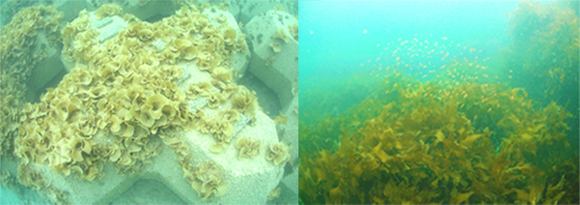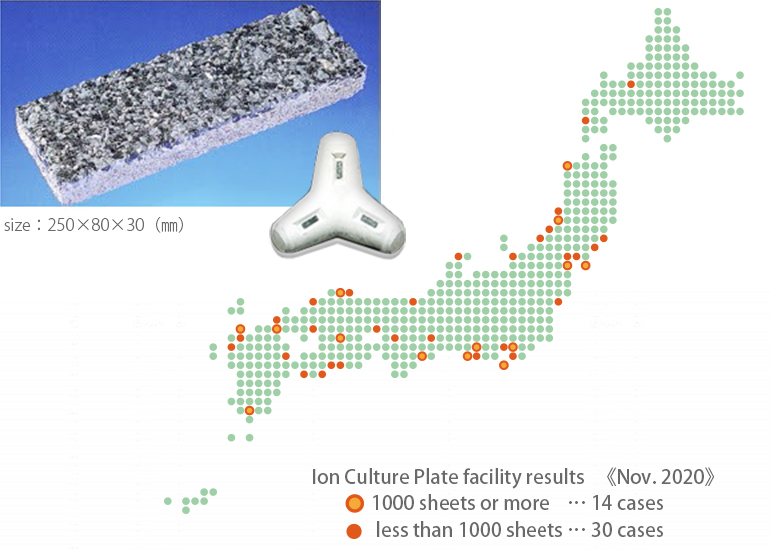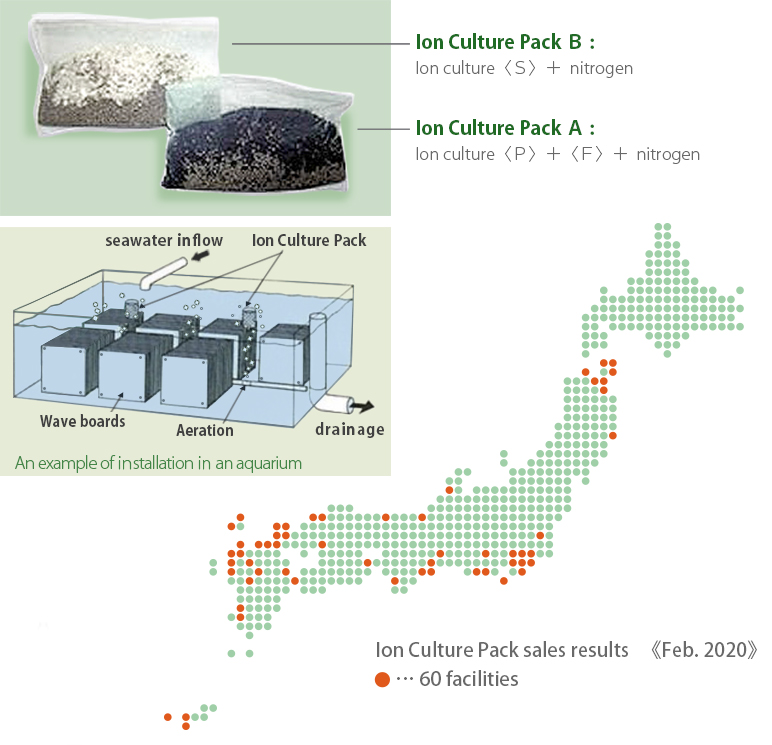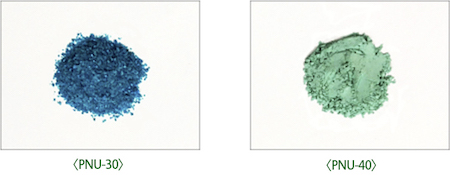Gently Water-Soluble Glass
Gently Water-Soluble Glass
for SDGs [Goal 14] Life Berow Water
Development of Glass that Slowly Dissolves in Water

It is a completely new functional glass material created by arranging the composition and structure of glass. Utilizing the properties of the active ingredients dissolved in the glass slowly dissolving into water, you can obtain the effect of promoting the action in water continuously for a certain period of time. Toyo Glass is developing products that take advantage of these characteristics.
■ Ion Culture 1. Ion Culture Plates 2. Ion Culture Pack
■ Copper ion eluting glass
Ion Culture( used to form seaweed beds and fishing grounds )

Carbon sequestered and stored by terrestrial organisms is ca led green carbon, while carbon sequestered and stored by marine organisms is called blue carbon. Blue carbon ecosystems play an important role in removing carbon dioxide from the atmosphere and storing it for a long period of time. In recent years, it has been attracting attention as a countermeasure against global warming.
Through joint development with Fudo Tetra Co., Ltd. , Toyo Glass is promoting the popularization of the product group “”Ion Culture”” which contributes to the promotion of the blue carbon ecosystem.
1. Ion Culture Plates
◆ Used for large-scale seaweed farming and fishing ground
- The plate shape makes installation easy, such as attaching to a tetrapod (wave-dissipating block).
- Elutes divalent iron, silicic acid, and phosphate ions for about 10 years.
- Nutrients such as phosphorus, silicon, and iron necessary for seaweed and phytoplankton are dissolved into the sea and ionized. In particular, iron, which promotes photosynthesis, is eluted as divalent iron ions, which are easily absorbed directly by algae cells.
- It has excellent durability, and the elution period can be controlled.

2. Ion Culture Pack
◆ Used for diatom growth
- It is used to grow diatoms, which are the initial food for juvenile clams, when producing seed lings such as abalone and sea urchin.
- Elute divalent iron, silicic acid, phosphate ions, and nitrogen fertilizer for about 3 months.
- The combination of ion culture and slow-release nitrogen brings about a high growth effect. Ion culture 〈F〉 elutes Fe (iron), 〈P〉 elutes P (phosphorus), and 〈S〉 elutes Si (silicon). The eluted iron is divalent iron ions.
- Since the elution period is long, maintenance is economical.

Copper ion eluting glass
◆ The glass that elutes copper ions (PNU) with anti-algae, bactericidal, and antibacterial properties
Toyo Glass has developed a copper ion eluting glass using a mildly water-soluble glass technology. By adding moisture, copper ions are slowly and continuously eluted, and the long-term sterilization effect of copper ions can be obtained.

Copper ions have antibacterial and antimicrobial effects on various types of bacteria even in small amounts. Copper ions are also known to repel not only fungi but also shellfish such as barnacles and large organisms such as slugs.
Gently water-soluble glass PNU-30 and PNU-40, developed by Toyo Glass, elute copper ions over a long period of time when in water, and can be expected to have various sterilizing, antibacterial, and repellent effects. It is also possible to adjust the elution period and elution concentration by adjusting the composition ratio and particle size according to the application.
◆Practical example (1) : Fishing net anti-fouling material for aquaculture
It is used as an additive to prevent seaweed and shellfish from adhering to fishing nets. When the meshes of nets used in aquaculture farms are blocked by deposits, the circulation of seawater is obstructed, leading to the death of the fish.

◆Practical example (2) : Growing a lawn
Our copper ion eluting glass, PNU, is used as a growth support for turf by inhibiting the growth and development of moss and algae on golf course greens. (Not a pesticide.) By sprinkling PNU on golf course greens, the growth and development of moss and algae are inhibited and the growth environment of the turf is restored. PNU is currently used at about 50 golf courses, mainly in the Kanto area and Yamaguchi Prefecture.
